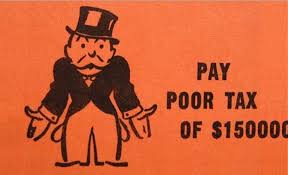记忆方法
将“impoverish”分解为“im-”和“poor-er-ish”。记住“im-”通常表示否定或加强,而“poor”意为贫穷的,“-er-”表示比较级,意味着更加,“-ish”常用于动词后表示使...成为。所以,可以想象为“使变得更贫穷”。
以上内容由AI生成, 仅供参考和借鉴
中文词源
impoverish 使贫穷
im-,进入,使,-pover,少的,贫穷,词源同poor,poverty.
英语词源
- impoverish (v.)
- early 15c., empoverischen, from Old French empoveriss-, stem of empoverir, from em- + povre "poor" (see poor). Related: Impoverished; impoverishing.
权威例句
- 1. National isolation can only cause economic and cultural impoverish-ment.
- 锁国只会导致经济和文化上的困厄。
- 2. These changes are likely to impoverish single-parent families even further.
- 这些变革很可能使单亲家庭更加贫困。
- 3. Reducing the income will further impoverish these families and could tempt an offender into further crime.
- 降低收入只会使这些家庭更加贫穷,而且可能诱使不法分子进一步犯罪。
- 4. We need to reduce the burden of taxes that impoverish the economy.
- 我们需要减轻导致经济困顿的税收负荷。
- 5. Impoverish the soil by overuse.
- 过度耕作而使土壤变得贫瘠.
